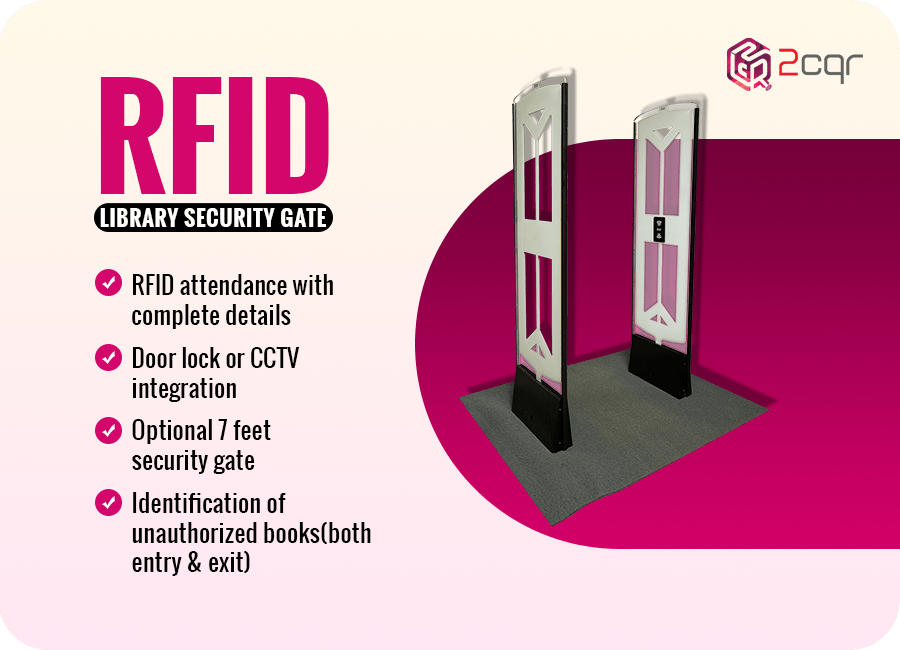
In today’s fast-paced, digitally driven world, RFID library solutions have emerged as invaluable tools in overcoming the challenges of library management.
In fact, as the realms of AI and machine learning continue to evolve, RFID technology remains a steadfast choice for libraries seeking to optimize their operations.
Let’s delve into the compelling factors that make RFID technology an exceptional choice for modern library management:
Integration: A Seamless Ecosystem
One of the standout features of RFID technology is its remarkable adaptability and integration capabilities. RFID systems seamlessly integrate with a wide array of complementary technologies.
From access control gates and CCTV cameras to advanced biometric and facial recognition systems, RFID technology can coexist harmoniously with these components.
This integration enhances security, facilitates information gathering, safeguards valuable resources, streamlines staff management, and elevates service quality. It all translates to improved accuracy, efficiency, and speed in library operations.
Customization: Tailored to Your Needs
Customization is a pivotal aspect that makes RFID an attractive choice for libraries of all sizes and requirements. Libraries can craft tailored RFID setups to precisely align with their unique needs.
This entails considering factors such as library size, collection size, security enhancement, accessibility, staff management, and adapting to evolving user demands. To ensure seamless implementation and functionality, it’s advisable to collaborate with experienced RFID suppliers who can help develop a system that not only aligns with your current goals but is also scalable for future needs.
Adaptability: Future-Proofing Your Library
Technology is in a constant state of evolution, with the transition from automation to artificial intelligence being a prime example. Adapting to these changes can be a monumental challenge, often incurring significant costs.
However, RFID automation systems offer a distinct advantage in adaptability. Libraries that have already embraced RFID technology find it easier to navigate advancements due to the inherent adaptability of RFID systems.
Forward-thinking planning during system design ensures that libraries can efficiently manage future changes.
Streamlined Workflow: Efficiency Redefined
Library management encompasses a multitude of tasks, from inventory organization to supply chain management, user requests, personalized recommendations, database maintenance, and security.
This complexity is particularly daunting for larger libraries with a constant influx of users and limited staff. RFID technology streamlines these workflows through automation, encompassing self-service stations, security gates, drop boxes, and intelligent shelving. This results in a more efficient and user-friendly library experience.
ROI in the Long Run: A Sound Investment
While the initial costs of designing and implementing RFID systems in libraries may seem substantial, the return on investment (ROI) over the long term is undeniably substantial. RFID technology reduces the need for extensive manual resources, periodic maintenance, frequent updates, and ongoing staff training to keep up with evolving technology.
Additionally, by continually upgrading services to enhance user experiences and subscription rates, libraries can secure a steady income stream, further reinforcing the long-term ROI.
In conclusion, RFID library solutions offer a transformative path for modern libraries seeking to enhance efficiency, streamline operations, and adapt to the ever-evolving technological landscape. While the initial investment is noteworthy, the long-term benefits make RFID technology a prudent choice for libraries committed to delivering exceptional service and staying ahead in the digital age.



1 comment on “What Makes RFID Library Solutions an Outstanding Option for Modern Libraries”